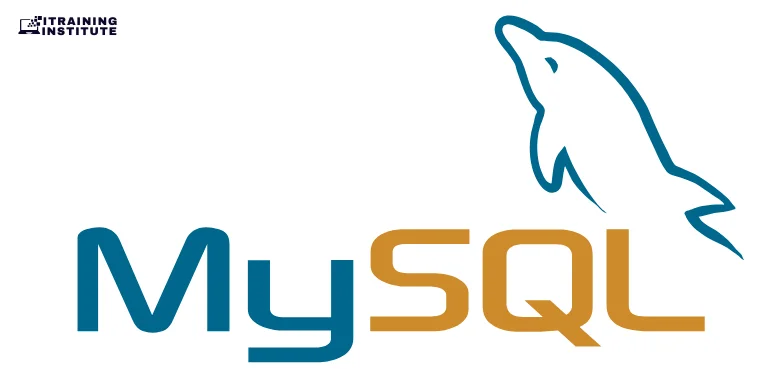
🎓 MySQL RDBMS Course in Noida | Training Institute
Master the most widely used Relational Database Management System (RDBMS) with our comprehensive MySQL Course at Training Institute, Noida. Designed for beginners and professionals alike, this course will help you manage, query, and optimize relational databases like a pro.
📖 Course Overview
The MySQL RDBMS Course at Training Institute is crafted to provide in-depth knowledge of relational databases, structured query language (SQL), and the efficient use of MySQL as a backend database engine. Ideal for web developers, data analysts, backend engineers, and aspiring database administrators, this program ensures you learn not only the syntax of SQL but also the principles behind data modeling, normalization, indexing, transactions, and performance optimization.
Starting with the fundamentals of databases and MySQL installation, the course progresses to advanced SQL queries, stored procedures, triggers, joins, subqueries, constraints, and real-world database projects. You’ll explore MySQL Workbench, design ER diagrams, practice on live servers, and even understand integration with programming languages like PHP and Python.
You’ll also gain hands-on experience in building secure, optimized, and scalable databases that support high-performance web and enterprise applications. Through real-world projects and case studies, you'll develop the practical skills needed to solve data management challenges and prepare for certifications or industry roles in backend development and data administration.
By the end of this course, you will be confident in designing scalable databases, writing optimized SQL queries, and administering MySQL for enterprise-level applications.
🎯 What You Will Learn
-
Introduction to MySQL & RDBMS Concepts
-
Data Definition Language (DDL) and Data Manipulation Language (DML)
-
Table creation, constraints, and relationships
-
Advanced SQL queries: joins, subqueries, views
-
Indexing, normalization (1NF, 2NF, 3NF)
-
Transactions, ACID properties & rollback techniques
-
Stored procedures, functions, triggers & events
-
User management, roles, and access privileges
-
Database backup, restore, and performance tuning
-
Integration with web and server-side programming
-
Real-world projects with MySQL backend
👨🎓 Who Should Enroll?
This course is ideal for:
-
BCA, MCA, B.Tech, and CS students
-
Web and backend developers
-
Data analysts and business analysts
-
Software testers and QA professionals
-
Anyone looking to master SQL and MySQL for real-world applications
🛠 Course Modules
📦 Module 1: Introduction to Databases
-
What is RDBMS?
-
MySQL architecture and installation
-
Understanding SQL vs NoSQL
📦 Module 2: Database Design & Table Creation
-
Data types, keys, and constraints
-
ER modeling and normalization
📦 Module 3: Core SQL Queries
-
SELECT, INSERT, UPDATE, DELETE
-
WHERE, ORDER BY, GROUP BY, HAVING
📦 Module 4: Advanced SQL
-
Joins (INNER, LEFT, RIGHT, FULL)
-
Nested queries, set operations, views
📦 Module 5: Stored Procedures & Functions
-
Creating procedures and functions
-
Using parameters and control flow
📦 Module 6: Triggers & Events
-
Defining triggers for business logic
-
Scheduling tasks using events
📦 Module 7: Security & User Management
-
Creating users and assigning privileges
-
Understanding GRANT and REVOKE
📦 Module 8: Performance Optimization
-
Indexing and query optimization
-
Backup and restore strategies
📦 Module 9: Real-World Project Work
-
Design and implement a complete database system
-
Integrate with a web application
📄 Certification & Placement Support
Upon successful completion, you’ll receive an industry-recognized MySQL Certification from Training Institute. We also offer:
-
🎯 Resume-building workshops
-
💼 Mock interviews and technical test preparation
-
🤝 Placement assistance with partner companies
-
🌐 Career guidance for international job roles
🕒 Course Duration & Fees
-
Duration: 60 hours / 2 Months
-
Mode: Offline (Noida Center) & Online (Live Classes)
-
Course Fee: Contact us for details and installment options
🏫 About Training Institute
Training Institute is a premier skill development center based in Noida, Delhi NCR, committed to empowering learners with cutting-edge technical knowledge and hands-on experience. With a reputation built on excellence, innovation, and industry relevance, we offer a diverse range of IT, language, and professional courses tailored for students, working professionals, and global learners.
Our mission is to bridge the gap between academic knowledge and industry demand by delivering job-oriented, project-based training under the guidance of certified instructors. All our programs are designed with real-world application in mind—ensuring learners not only gain theoretical insights but also acquire the practical skills needed to thrive in competitive environments.
From programming languages and databases to cybersecurity, cloud computing, mobile app development, foreign languages, and more, our curriculum is continuously updated to reflect the latest trends and technologies.
🌐 Why Students Choose Us:
-
📚 Experienced trainers with real-world expertise
-
💻 Interactive online and offline learning options
-
👨🏫 Live project implementation with expert guidance
-
🏅 Industry-recognized certifications
-
🌍 Global reach with students from India, USA, UAE, Canada & beyond
-
🤝 Strong placement assistance and interview preparation
Whether you’re aiming to enhance your career, start a new journey in tech, or gain certifications for global employment, Training Institute is your trusted partner in success.
📍 Our Location
Training Institute
MC Complex, Near Metro Station,
Sector-15, Noida, Uttar Pradesh – 201301
📞 Call: +91-9821641408
📧 Email: info@itraininginstitute.com
🌐 Website: www.itraininginstitute.com
🚀 Ready to Master MySQL with Us?
Take the first step toward becoming a certified MySQL professional and building a successful career in database development and administration.
📲 Enroll Now or Get More Info:
-
📞 Call/WhatsApp: +91-9821641408
-
📧 Email: info@itraininginstitute.com
-
🌐 Website: www.itraininginstitute.com
-
🏢 Visit Us: MC Complex, Near Sector-15 Metro Station, Noida – 201301
🎯 Limited Seats Available! Enroll now to join our next batch (Online & Offline) and get hands-on experience with expert guidance.
